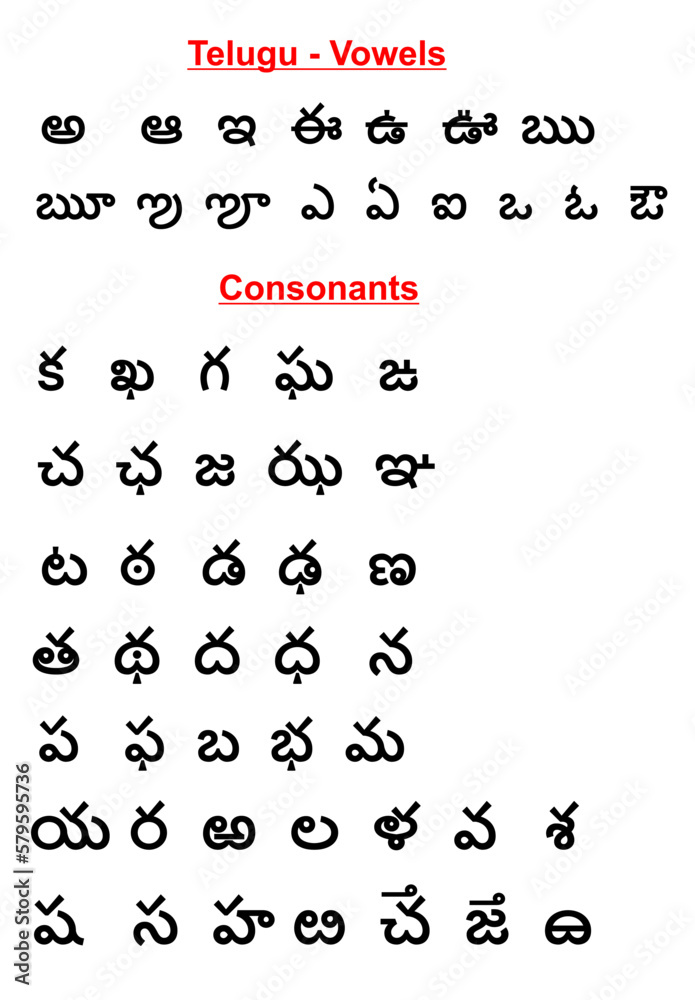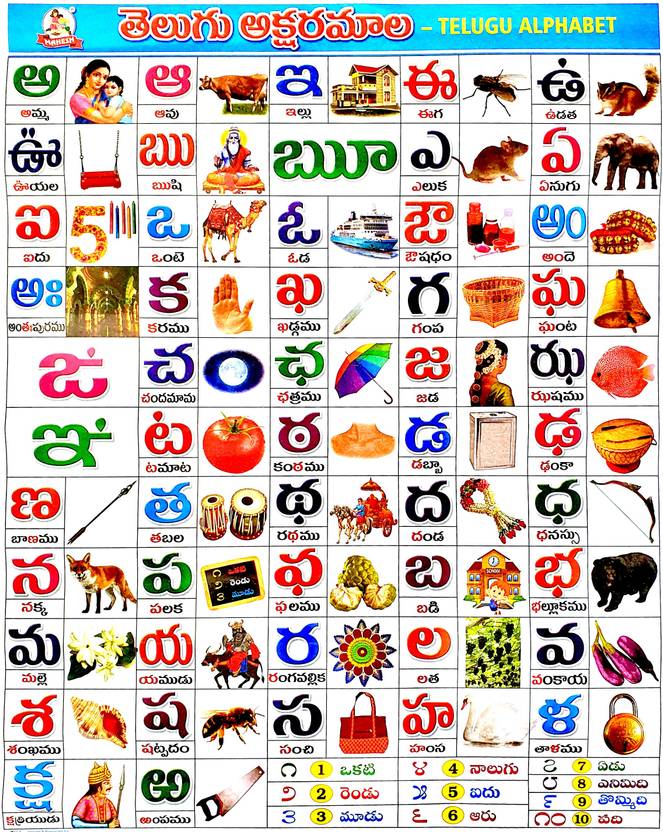Discovering Telugu: Language, News, And Culture Of Andhra Pradesh & Telangana
Ever wondered which language unites millions across India and beyond, a language with a rich history etched in ancient inscriptions and a vibrant presence in modern media? It's Telugu, a classical Dravidian language that stands as a testament to cultural heritage and linguistic diversity, bridging the past and present with its enduring legacy.
[\u02c8t\u032aelu\u0261u], more commonly known as Telugu, holds a significant place in the linguistic landscape of India. As a Dravidian language, it boasts a lineage distinct from the Indo-European languages prevalent in the northern parts of the country. Its origins can be traced back centuries, with the earliest known inscriptions dating back to the 6th century CE, discovered on the stone tablets of the Renati Cholas. These ancient inscriptions serve as a tangible link to the language's historical roots, providing valuable insights into its evolution and development over time.
Telugu is primarily spoken in southeastern India, where it serves as the official language of the states of Andhra Pradesh and Telangana. These states are not only the heartland of Telugu speakers but also the epicenter of Telugu culture, traditions, and literary heritage. The language's presence extends beyond these states, with significant Telugu-speaking communities found in neighboring regions such as Tamil Nadu, Karnataka, and Orissa. Furthermore, Telugu has also found its way to the Andaman and Nicobar Islands and even to Kharagpur in West Bengal, reflecting the widespread dispersal of Telugu speakers across the Indian subcontinent. The influence of Telugu isn't confined to India's borders; diaspora communities around the world contribute to the language's global presence, ensuring its continuity and vitality across generations.
- Candace Owens Exposes The Truth Behind Becoming Brigitte Macron
- Aagmaalgives What You Need To Know 2024 Update
| Telugu Language: Key Facts | |
|---|---|
| Language Name | Telugu () |
| Language Family | Dravidian |
| Native To | Andhra Pradesh & Telangana, India |
| Official Language In | Andhra Pradesh, Telangana |
| Spoken In | Southeastern India (Tamil Nadu, Karnataka, Orissa, etc.) and globally by diaspora communities |
| Approximate Number of Speakers | Over 75 million (early 21st century) |
| Earliest Inscriptions | 6th Century CE (Renati Cholas) |
| Writing System | Telugu script (derived from Brahmi script) |
| Alphabets | Aksharaalu (\u0c05\u0c15\u0c4d\u0c37\u0c30\u0c3e\u0c32\u0c41), also called as varna maala (\u0c35\u0c30\u0c4d\u0c23 \u0c2e\u0c3e\u0c32) |
| News Outlets | Eenadu, Sakshi, Telugu V6 Velugu News, DishaDaily |
| Entertainment | Aha (OTT platform), Telugu movies and songs |
| Reference | Wikipedia - Telugu Language |
At the dawn of the 21st century, Telugu boasted a vibrant community of over 75 million speakers, solidifying its position as one of the most widely spoken languages in India. This impressive figure underscores the language's enduring vitality and its continued relevance in a rapidly changing world. Telugu ranks as the third most common language in India, after Hindi and Bengali. Its extensive reach underscores its significance as a vital means of communication, cultural expression, and social cohesion for millions of people.
Telugu's presence in the media is undeniable, with a multitude of news outlets catering to its vast audience. Eenadu, Sakshi, and Telugu V6 Velugu News stand as prominent examples, delivering the latest news and information to Telugu speakers both within India and abroad. These news platforms provide comprehensive coverage of current events, politics, business, entertainment, and more, keeping Telugu speakers informed and engaged with the world around them. In addition to these established news outlets, newer platforms like DishaDaily have emerged, further expanding the reach and accessibility of Telugu news content.
Beyond the realm of news, Telugu thrives in the world of entertainment. Aha, a premium over-the-top (OTT) service, offers a diverse selection of movies, web series, TV shows, and live TV channels in Telugu and Tamil, catering to the entertainment needs of Telugu speakers around the globe. With its high-definition and 4K quality content, Aha provides an immersive viewing experience that showcases the best of Telugu cinema and television. Furthermore, Telugu movies and songs enjoy immense popularity, captivating audiences with their compelling stories, memorable melodies, and captivating performances. The availability of Telugu entertainment content across various platforms ensures that the language remains vibrant and accessible to audiences of all ages and backgrounds.
- Hubmasa Safe Platform Or Risky Website The Facts Revealed
- Latest Mms Telegram Links Find It Here Join Now
The Telugu language is more than just a means of communication; it is a repository of culture, a vehicle for artistic expression, and a symbol of identity for millions of people. Its rich literary tradition, vibrant media landscape, and thriving entertainment industry all contribute to its enduring vitality and its continued relevance in the 21st century. As Telugu speakers continue to connect, create, and communicate in their native tongue, the language's legacy is sure to endure for generations to come.
The elegance and expressiveness of Telugu are vividly reflected in its script, which is derived from the ancient Brahmi script. The Telugu alphabet, known as "aksharaalu" (\u0c05\u0c15\u0c4d\u0c37\u0c30\u0c3e\u0c32\u0c41) or "varna maala" (\u0c35\u0c30\u0c4d\u0c23 \u0c2e\u0c3e\u0c32), is a testament to the language's rich phonetic structure and its ability to convey a wide range of sounds and nuances. The script's graceful curves and intricate formations lend a distinct aesthetic appeal to written Telugu, making it a delight to behold and a pleasure to read.
Understanding the nuances of Telugu pronunciation is crucial for both native speakers and those learning the language. The sounds of Telugu, while seemingly complex at first, follow a consistent and logical system. Vowel sounds like \u0c05, \u0c06, \u0c07, \u0c08, \u0c09, \u0c0a, \u0c0b, and \u0c60 form the foundation of Telugu phonetics, each with its distinct articulation and acoustic properties. Mastering these vowel sounds is essential for accurate pronunciation and effective communication in Telugu.
News plays a vital role in keeping Telugu speakers connected to their communities and informed about the world around them. Several prominent news outlets cater specifically to Telugu-speaking audiences, providing comprehensive coverage of local, national, and international events. Eenadu, for example, is a widely respected Telugu-language newspaper that delivers the latest news and analysis to readers across Andhra Pradesh and Telangana. Similarly, Sakshi is another popular Telugu news platform that offers a diverse range of content, including breaking news, political analysis, and cultural commentary. These news outlets, along with others like Telugu V6 Velugu News and DishaDaily, play a crucial role in shaping public opinion and fostering informed civic engagement among Telugu speakers.
Beyond traditional news sources, Telugu speakers also have access to a wealth of online news and information. Many news websites and mobile apps offer Telugu-language content, allowing users to stay informed on the go. These digital platforms provide a convenient and accessible way to consume news, whether it's breaking headlines, in-depth investigations, or opinion pieces. The availability of Telugu news online has significantly expanded the reach and accessibility of information, empowering Telugu speakers to stay connected and engaged with the world around them.
The entertainment industry in Telugu is thriving, with a diverse range of movies, music, and television shows captivating audiences both within India and abroad. Telugu cinema, often referred to as Tollywood, is a major force in the Indian film industry, producing a steady stream of commercially successful and critically acclaimed movies. These films showcase the talents of Telugu actors, directors, and musicians, and they often explore themes and issues that resonate with Telugu audiences. Telugu music is equally popular, with a wide variety of genres catering to diverse tastes, from traditional folk songs to contemporary pop hits. The Telugu television industry is also booming, with numerous channels offering a mix of news, entertainment, and educational programming.
OTT platforms like Aha have further revolutionized the way Telugu speakers consume entertainment. These streaming services offer a vast library of Telugu movies, web series, and TV shows, allowing viewers to watch their favorite content on demand, anytime and anywhere. Aha, in particular, has emerged as a leading OTT platform for Telugu content, offering a premium viewing experience with high-definition and 4K quality content. The rise of OTT platforms has not only expanded the reach of Telugu entertainment but has also created new opportunities for content creators to reach a global audience.
Telugu culture is rich and diverse, encompassing a wide range of traditions, customs, and artistic expressions. Telugu cuisine is renowned for its spicy and flavorful dishes, with regional variations reflecting the diverse culinary traditions of Andhra Pradesh and Telangana. Telugu music and dance are equally vibrant, with classical forms like Kuchipudi dance and Carnatic music showcasing the region's rich artistic heritage. Telugu literature has a long and distinguished history, with notable works of poetry, drama, and prose reflecting the language's literary prowess. Telugu festivals, such as Sankranti and Ugadi, are celebrated with great enthusiasm and fanfare, showcasing the region's cultural vibrancy.
The preservation and promotion of Telugu language and culture are essential for ensuring its continued vitality and relevance in the 21st century. Various organizations and initiatives are working to promote Telugu language education, support Telugu literature and arts, and foster a sense of cultural identity among Telugu speakers. These efforts include Telugu language schools, cultural centers, and online resources that provide opportunities for learning, engagement, and cultural exchange. By supporting these initiatives, we can help ensure that Telugu language and culture continue to thrive for generations to come.
In conclusion, Telugu is a vibrant and dynamic language with a rich history, a thriving media landscape, and a vibrant cultural heritage. Its millions of speakers around the world are a testament to its enduring vitality and its continued relevance in the 21st century. As Telugu speakers continue to connect, create, and communicate in their native tongue, the language's legacy is sure to endure for generations to come. From ancient inscriptions to modern media, Telugu stands as a powerful symbol of cultural identity, linguistic diversity, and human connection.
The continuous evolution of Telugu is evident in its adaptation to the digital age. The availability of Telugu fonts, keyboards, and software has made it easier than ever for Telugu speakers to communicate and create content online. Social media platforms, messaging apps, and online forums provide opportunities for Telugu speakers to connect with one another, share ideas, and express themselves in their native tongue. The rise of digital technology has not only facilitated communication but has also fostered a sense of community among Telugu speakers around the world.
Efforts to standardize and modernize Telugu are ongoing, with linguists and scholars working to develop a comprehensive grammar, lexicon, and writing system that meets the needs of contemporary speakers. These efforts include the creation of dictionaries, grammar guides, and online resources that provide learners with the tools they need to master the language. Standardization and modernization are essential for ensuring that Telugu remains relevant and accessible in a rapidly changing world.
The role of Telugu in education is crucial for ensuring the language's future. Telugu is taught in schools and universities across Andhra Pradesh and Telangana, providing students with the opportunity to learn their native language and appreciate its rich literary heritage. Telugu language courses are also available online and in adult education programs, catering to learners of all ages and backgrounds. By promoting Telugu language education, we can help ensure that future generations continue to speak, read, and write in their native tongue.
The influence of Telugu on other languages is evident in the presence of Telugu loanwords in neighboring languages such as Tamil, Kannada, and Marathi. These loanwords reflect the historical and cultural interactions between Telugu speakers and their neighbors. Similarly, Telugu has borrowed words from other languages, including Sanskrit, Persian, and English, reflecting its openness to linguistic influence. The exchange of words between languages is a natural process that enriches vocabulary and reflects the dynamic nature of language.
The nuances of Telugu grammar can be challenging for learners, but mastering these nuances is essential for achieving fluency and accuracy. Telugu grammar includes a complex system of verb conjugations, noun declensions, and sentence structures that differ significantly from those of Indo-European languages. Understanding these grammatical concepts requires careful study and practice, but the rewards are well worth the effort.
The use of Telugu in literature is a testament to the language's expressive power and its ability to convey complex ideas and emotions. Telugu literature encompasses a wide range of genres, including poetry, drama, novels, short stories, and essays. Notable Telugu writers such as Sri Sri, Viswanatha Satyanarayana, and Gurajada Apparao have made significant contributions to Indian literature, and their works continue to be read and admired today. The study of Telugu literature provides valuable insights into the history, culture, and values of Telugu speakers.
The idioms and proverbs of Telugu reflect the wisdom and experiences of generations of Telugu speakers. These idiomatic expressions often use colorful imagery and metaphors to convey profound truths about life, love, and human nature. Learning Telugu idioms and proverbs is a great way to deepen one's understanding of the language and its cultural context.
The future of Telugu is bright, with ongoing efforts to promote its use in education, media, and technology. As Telugu speakers continue to embrace digital technology and connect with one another online, the language is sure to evolve and adapt to the needs of the 21st century. By supporting Telugu language and culture, we can help ensure that its rich legacy continues to inspire and enrich the lives of future generations.
The increasing globalization and interconnectedness of the world have presented both challenges and opportunities for the Telugu language. On the one hand, the dominance of English as a global lingua franca can pose a threat to the vitality of minority languages like Telugu. On the other hand, globalization has also created new opportunities for Telugu speakers to connect with one another and share their language and culture with the world. By embracing technology and promoting multilingualism, Telugu speakers can ensure that their language continues to thrive in the global age.
The role of parents and families in preserving and promoting Telugu is crucial. Parents can encourage their children to speak Telugu at home, read Telugu books, and watch Telugu movies and TV shows. They can also enroll their children in Telugu language classes and participate in Telugu cultural events. By instilling a love of Telugu in their children, parents can help ensure that the language continues to be passed down from one generation to the next.
The use of Telugu in government and administration is essential for ensuring that all citizens have access to information and services in their native language. Governments can promote the use of Telugu in official documents, public announcements, and online services. They can also provide interpreters and translators to assist Telugu speakers who do not speak English or Hindi. By promoting multilingualism and providing language access, governments can ensure that all citizens are treated equally and have the opportunity to participate fully in society.
The support of the Telugu diaspora is vital for the long-term survival and growth of the language. Telugu speakers living abroad can play a significant role in promoting Telugu language and culture by organizing cultural events, establishing Telugu schools, and supporting Telugu media and arts. They can also use social media and other online platforms to connect with other Telugu speakers and share their language and culture with the world. By staying connected to their roots and promoting their language and culture, the Telugu diaspora can help ensure that Telugu continues to thrive for generations to come.
The importance of documentation and archiving of Telugu language and culture cannot be overstated. By collecting and preserving Telugu books, manuscripts, recordings, and other cultural artifacts, we can ensure that future generations have access to the rich heritage of the Telugu-speaking world. Libraries, museums, and archives can play a vital role in documenting and preserving Telugu language and culture, and their efforts should be supported and encouraged.
The need for research and development in Telugu language technology is becoming increasingly urgent. As more and more people use technology to communicate and access information, it is essential that Telugu is supported by a wide range of language technologies, including speech recognition, machine translation, and text-to-speech synthesis. By investing in research and development in Telugu language technology, we can help ensure that Telugu speakers have access to the same digital tools and resources as speakers of other languages.
The spirit of innovation and creativity is alive and well in the Telugu-speaking world. Telugu artists, writers, musicians, and filmmakers are constantly pushing the boundaries of creativity and exploring new forms of expression. By supporting and celebrating Telugu arts and culture, we can help ensure that the language continues to inspire and enrich the lives of people around the world.
The future of Telugu depends on the collective efforts of Telugu speakers, language advocates, educators, policymakers, and technology developers. By working together, we can create a vibrant and sustainable future for the Telugu language, ensuring that it continues to thrive for generations to come. From its ancient roots to its modern expressions, Telugu remains a powerful symbol of cultural identity, linguistic diversity, and human connection. Its enduring legacy is a testament to the resilience and creativity of the Telugu-speaking people, and its future is bright with promise.
- Night Mood 2023 Mojflix Originals Web Series Ep 1 Watch Now
- Omg Czech Wife Swap Hot Scenes Amp Drama You Wont Believe

Set of Telugu language Alphabets. Stock Vector Adobe Stock

Telugu Alphabets for Kids Telugu Aksharamala wall Chart for Kids

Telugu Language and Culture Resources Center for Language and Culture